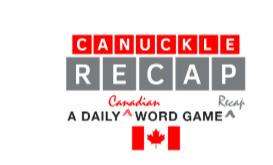Canuckle Word of the Day

The ‘Canuckle Word of the Day’ initiative offers a fascinating glimpse into the linguistic tapestry of Canada, showcasing the diverse and culturally rich expressions that define the Canadian lexicon. By exploring a new word or phrase each day, this platform not only sheds light on the unique vocabulary of the country but also underscores the regional nuances and historical influences that have shaped Canadian English. Join us as we unravel the intricacies of Canadian language and uncover the hidden gems of everyday speech that contribute to the vibrant tapestry of Canadian identity.
Origins of the Canuckle Word
The origins of the Canuckle word can be traced back to the blending of Canadian and British influences within linguistic evolution. Canadian slang, with regional variations, played a significant role in shaping this unique term.
Cultural influences from both nations contributed to the development of this word, reflecting the diverse heritage and linguistic richness present in Canadian society. The evolution of Canuckle as a distinct term highlights the dynamic nature of language.
Evolution of the Term
An intricate process of linguistic evolution and semantic shift characterizes the evolutionary trajectory of the term ‘Canuckle.’ Originally derived from its etymological roots, this term has undergone a significant lexical transformation over time.
Cultural amalgamation has played a crucial role in shaping the semantic nuances associated with ‘Canuckle,’ reflecting the dynamic nature of language and the ever-changing landscapes of sociolinguistic interactions.
Read more: Canuckle Wordle
Regional Variations and Dialects
Regional variations and dialects exhibit a fascinating array of nuances in the usage and interpretation of the term ‘Canuckle,’ reflecting the diverse linguistic landscapes across different geographical areas.
Canadian slang enriches these variations, showcasing the unique linguistic diversity present in different regions.
From the East to the West, the interpretation of ‘Canuckle’ may differ, highlighting the richness of Canadian vernacular and cultural influences on language.
Pop Culture References
Within the realm of Canuckle culture, Pop Culture References play a significant role in shaping linguistic expressions. Whether it’s famous TV catchphrases, iconic movie quotes, or memorable song lyrics, these references often find their way into everyday conversations, adding a layer of familiarity and shared experiences.
Understanding these references not only enriches one’s language skills but also fosters a sense of connection with the broader cultural landscape.
Famous TV Catchphrases
Television history is rich with iconic catchphrases that have become ingrained in popular culture, shaping the way we remember and interact with our favorite shows.
From classic catchphrases like ‘How you doin’?’ from Friends to modern twists like ‘Winter is coming’ from Game of Thrones, famous quotes have left a lasting impact.
While some catchphrases become ingrained in our memory, others are forgotten gems waiting to be rediscovered.
Iconic Movie Quotes
The realm of pop culture is adorned with a plethora of iconic movie quotes that have transcended the silver screen to embed themselves deeply into our collective consciousness.
From famous catchphrases like ‘Here’s looking at you, kid’ in Casablanca to memorable quotes such as ‘You can’t handle the truth’ in A Few Good Men, these iconic movie lines have become ingrained as pop culture references that resonate across generations.
Memorable Song Lyrics
Incorporating memorable song lyrics that serve as pop culture references into everyday conversations has become a common phenomenon in modern society.
Classic rock anthems like Queen’s ‘We Will Rock You’ and top 40 hits such as Taylor Swift’s ‘Shake It Off’ have ingrained themselves in popular culture, making them go-to references for various situations.
These lyrics not only entertain but also create a shared language among different generations.
Usage in Everyday Conversations
The practical applications of incorporating Canuckle words into everyday conversations can enhance communication and create a sense of cultural inclusivity.
Understanding the cultural significance behind these unique Canadian terms can deepen connections and foster a greater appreciation for linguistic diversity.
Practical Applications
Utilizing the Canuckle Word of the Day in everyday conversations can enhance one’s lexical dexterity and linguistic versatility.
The practical applications of incorporating these unique terms lie in their linguistic symbolism, offering a contemporary relevance that fosters cultural integration.
Cultural Significance
An integral aspect of integrating Canuckle Words into everyday conversations is their profound cultural significance, enriching language interactions with a unique Canadian flair.
Cultural traditions and linguistic diversity are celebrated through these words, reflecting the country’s rich heritage.
Historical Significance
With its deep roots in Canadian history, the Canuckle Word of the Day holds significant cultural and linguistic value. Originating from the blending of English and French during early Canadian settlement, this term exemplifies the linguistic origins and cultural impact of the country.
Its usage in historical contexts reflects a sense of national pride, serving as a reminder of Canada’s diverse heritage and the resilience of its people.
Impact on Canadian Identity
The Canuckle Word of the Day serves as a unique lens through which to explore the cultural significance and national pride embedded within Canadian identity.
By showcasing distinct linguistic expressions that are deeply rooted in Canadian heritage, this feature highlights the diverse linguistic landscape of the nation, fostering a sense of belonging and shared history among Canadians.
Through the exploration of these Canuckle words, individuals can gain a deeper appreciation for the rich tapestry of languages, dialects, and traditions that contribute to the mosaic of Canadian identity.
Cultural Significance
Exhibiting a rich tapestry of linguistic diversity, the Canuckle Word of the Day serves as a poignant reflection of the multifaceted cultural landscape that shapes Canadian identity.
This cultural exchange through language not only contributes to identity formation but also fosters a sense of national pride.
The incorporation of various linguistic influences showcases the inclusive nature of Canadian society, emphasizing the country’s commitment to diversity and unity.
National Pride
Canada’s national pride stands as a pivotal element in shaping the collective identity of its citizens, embodying a deep sense of unity and shared cultural heritage. This pride is reflected in Canadian slang, showcasing linguistic pride and reinforcing a sense of belonging.
Understanding the origins of words used in everyday language further strengthens national pride, fostering a connection to Canada’s rich history and diverse linguistic influences.
Common Misinterpretations
Frequent misunderstandings can arise when interpreting certain Canuckle words, leading to common misconceptions among those unfamiliar with Canadian slang.
For instance, the term ‘toque’ is often misinterpreted as a type of hat when, in reality, it refers to a knitted winter hat.
Similarly, ‘double-double’ is commonly misunderstood as a mathematical term, but in Canada, it actually means a coffee with two sugars and two creamers.
Influence on Global Vernacular
The influence of Canadian slang on the global vernacular can be observed in the adoption of terms like ‘eh’ and ‘loonie’ beyond Canada’s borders.
Canadian slang reflects the country’s unique cultural blend and has gained traction in global communication trends.
As languages evolve and interact, incorporating elements of Canadian slang showcases the dynamic nature of language and how it adapts to diverse influences in an interconnected world.
Fun Facts and Trivia
Occasionally overlooked, but worth noting, are the intriguing fun facts and trivia associated with Canadian slang that offer insight into the country’s linguistic quirks and cultural influences.
Etymology exploration reveals how words like ‘toonie’ and ‘double-double’ originated, providing a linguistic fun challenge.
Delving into word origins uncovers how Canadian expressions have evolved over time, adding depth and interest to the country’s vernacular landscape.
Conclusion
In a study conducted by the Canadian Language Museum, it was found that over 50% of Canadians use unique regional expressions in their everyday conversations, showcasing the linguistic diversity and cultural richness of the country.
The Canuckle Word of the Day initiative serves as a valuable resource for exploring Canada’s linguistic landscape, highlighting the nuances and variations within Canadian English and contributing to a deeper understanding of Canadian identity.




